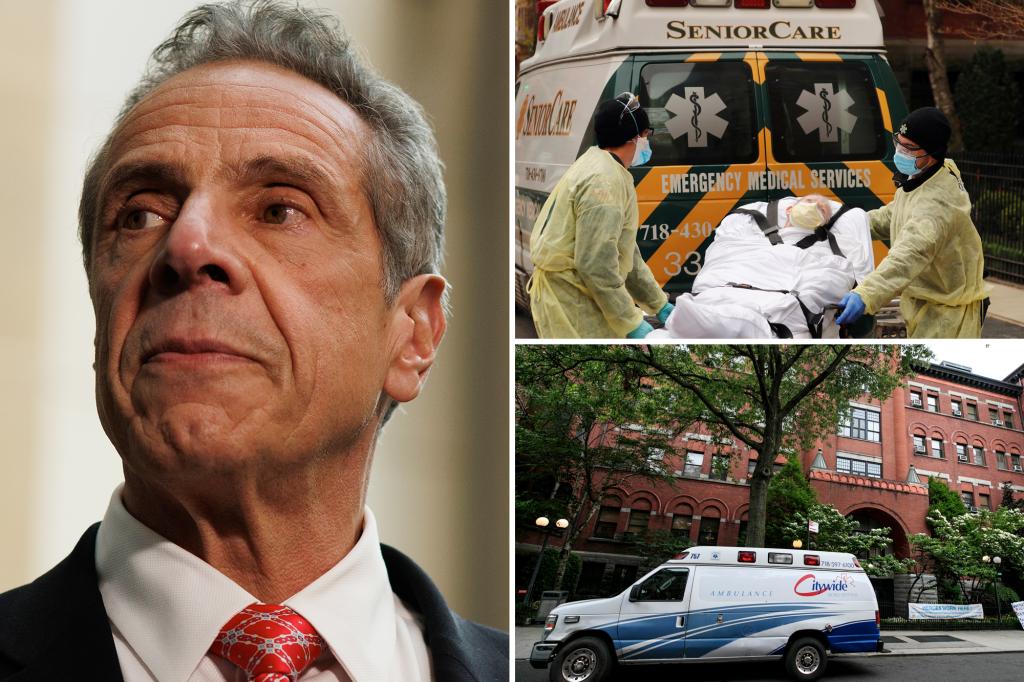A recent investigative report released by the Republican-led House Select Subcommittee on the Coronavirus Pandemic has made serious allegations against former New York Governor Andrew Cuomo regarding his handling of COVID-19 in nursing homes. This more than 500-page report concludes that Cuomo committed “medical malpractice” and intentionally undercounted nursing home deaths during the pandemic’s peak. Findings indicate that Cuomo was “directly involved” in a controversial March 2020 directive that required nursing homes to accept recovering COVID-19 patients, a decision deemed “antithetical to known science.” The report also suggests that Cuomo downplayed pandemic-related deaths in a July 2020 report, which was criticized for significantly lowballing the number of fatalities.
The subcommittee’s investigation points to additional misconduct, alleging that Cuomo attempted to influence testimonies and obstruct investigations into his administration’s pandemic response. It specifically highlights interactions between Cuomo and former adviser James Malatras. Despite substantial evidence against him, including testimony from officials and Cuomo’s own involvement in editing official reports, Cuomo and his representatives have dismissed the findings as partisan attacks. Cuomo’s spokesperson, Richard Azzopardi, characterized the report as a “witch hunt” by Republicans intent on discrediting him and labeled the committee’s claims as weak and lacking merit.
However, bipartisan agreement within the panel underscored the gravity of the findings, as Rep. Brad Wenstrup stressed that Cuomo’s actions constituted serious medical malfeasance and further covered up nursing home death tolls. A significant portion of the report focuses on the nursing home policy decisions made by Cuomo’s administration. It is reported that Cuomo’s directive to allow COVID-19 patients back into nursing homes was in direct contradiction to both science and federal guidelines, leading to preventable loss of life. Moreover, the decision to exclude “out-of-facility” COVID-19 deaths from official counts drastically altered the public’s understanding of the impact of the pandemic.
The implications of the report are profound as it concludes that Cuomo likely gave false statements to the Select Subcommittee, constituting a violation of federal law. These findings led the committee to refer his actions to the U.S. Department of Justice for potential criminal prosecution. If charged and proven guilty, Cuomo could face up to five years in prison. While Cuomo’s representatives have argued that prior investigations, including those by the DOJ and local authorities, found no wrongdoing related to his nursing home policies, the new findings cast doubt on that narrative.
Families of loved ones who perished in nursing homes during the pandemic have expressed relief that Cuomo may finally be held accountable for his alleged negligence. Personal testimonies from affected families, such as Peter Arbeeny, who lost his father due to the policy failures, highlight their belief that additional lives would have been saved had Cuomo followed federal guidelines and utilized available resources effectively. They assert that Cuomo’s decisions directly contributed to the tragic outcomes experienced within nursing homes across New York.
As Cuomo contemplates a political comeback, possibly running for mayor, the fallout from this report remains significant. The allegations against him and the potential for criminal prosecution present a formidable challenge to any future political ambitions he may have. Meanwhile, the ongoing scrutiny of his administration’s pandemic response emphasizes that the consequences of leadership decisions during crises can have far-reaching implications for public health and trust in governance. The report not only sheds light on Cuomo’s actions but also raises broader questions about accountability in public service during unprecedented emergencies.

